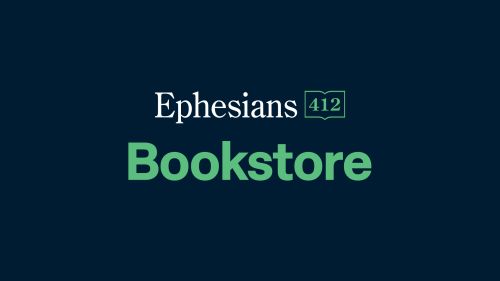The great English preacher, Charles Spurgeon once said: “Many books in my library are now behind and beneath me. They were good in their way once, and so were the clothes I wore when I was ten years old; but I have outgrown them. Nobody ever outgrows Scripture; the book widens and deepens with our years.”
Christians throughout the history of the world have come to appreciate this divine wonder that God has given to us in his word. It is alive and active, it is honey to those who eat it, sure footing to those who tread upon it and a light for those who need it. But for many sincere believers, reading the Bible can often be difficult.
All too often we either fail to plan, or we are intimidated by what we do read. If you’ve been tripped up by one of these, there are small steps you can take to know God better through Bible reading. Just in time for your New Year’s resolutions, we want to provide three key resources which will help you experience the wonder of God in his word.
A Simple Bible Reading Plan:
There are lots of great Bible reading plans and the best way to grow consistent in Bible reading is to make a plan. The past few years we have read the Bible together as a church and this has had a unique effect on disciples and conversations as we are able to interact more easily over God’s word.
For 2023-2024 our Bible Reading plan is going to be a two year plan that brings us through the whole of the Bible, reading two chapters a day with one catch up day a week. Many people attempt a plan designed to get through the whole Bible but either the pace or the content seems to trip them up.
To help with the pace we are going to work on it over two years, in just two chapters a day. But to help with the content we are going to be doing a series beginning January 2023 that walks through the narrative and genres of the Bible—helping us understand not only the story but how we can read and study in a way that devotionally enflames our hearts and hands for Jesus.
You can follow along with the plan, with the help of some other resources, in our Sovereign Hope Bible Reading App (available on iOS and Android). Or, you can find a PDF version of the plan here (this currently just includes the 1st couple months of the plan and the full plan will be coming out soon!), or pick up a physical copy at the Info Desk.
Bible Memory:
The theme for our Bible Memory this year is “The Promises of God.” For 52 weeks we are going to hide assurances for the Christian life in our heart, reminding ourselves of God’s help as we attempt to glorify God and love others by being and making disciples. The verses were chosen to be short enough that whole families can participate together. These verses, and memorization tools are also available in the Sovereign Hope App.
A Good Study Bible:
Sometimes when it comes to reading our Bible we can read it a bit too much like a text book. In this way study Bibles can sometimes be unhelpful for those who are prone to this error. In the end we can often look at God and theology like a science project instead of a person who knows us and wants to be known by us.
But for many of us (myself included, though I’m prone to all the errors above) study Bibles give us a little push where our wheels might have gotten a bit bogged down. While the Bible was clearly written by the prophets and apostles, and able to be understood by all people, there are some places in scripture where we often get bumped off track. Maybe it’s a tough issue, a difficult to follow story, or vocabulary you aren’t yet familiar with, but a good study Bible helps bring you a bit more clarity in places like that.
I use study Bible notes like a score board during a football game. When there are times when I feel lost or confused as to what is happening, I’m able to consult the notes and in a metaphorical sense they let me know some important thing: What’s the score? How much time is left? And who has the football?
Notes can help us understand texts which rely more closely on certain historical events that we may not be familiar with, or they can help us understand how any given text relates to the gospel event. I know for my own devotions, there are often times where there is just enough of a lack of clarity that my mind can’t really focus on what I read afterwards. A quick glance at the study notes helps me process through that so that I can get back to reading.
Here are some study Bibles that might help you. Since the translation we use at Sovereign Hope is the ESV, I’m only going to recommend ones based off that. But there are lots of good options regardless of your translation (I’ve actually found it helpful to pick a new translation every few years for my daily readings to help keep the readings fresh and to avoid the “I’ve already read this” feeling). Each of these are also available digitally via the ESV website and app.
The ESV Study Bible: One of the best all-around Study Bibles when it comes to practical and helpful notes on both theological and cultural issues in the biblical texts.
The ESV Story of Redemption Bible: While not as thorough as the former one, the Story of Redemption Bible includes notes and articles which help you understand the ways in which the whole Bible is telling one single story: the story of redemption. These notes, written by Pastor Greg Gilbert, help you understand the relationship that different parts of the Bible play in connection to the gospel event (which is the lens through which we should read the whole Bible!).
The ESV Gospel Transformation Bible: This specific Bible is a great blend between the first two options. It engages a bit more critically with historical and cultural details than the “Story of Redemption” Bible, but leans more towards practical application than the ESV Study Bible. This one probably hits the mark for the average reader of the Bible.




